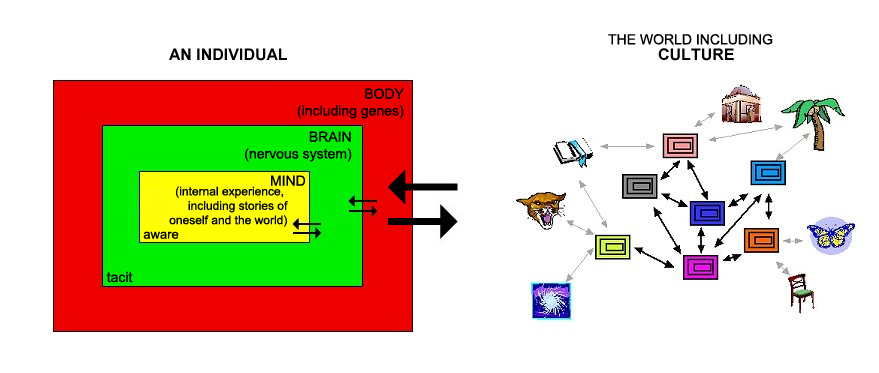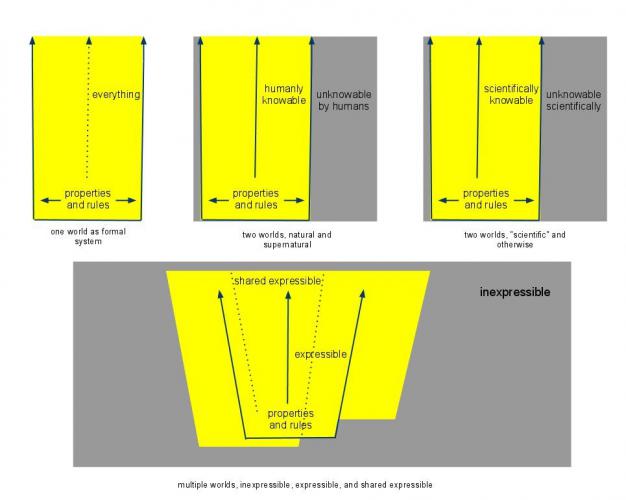Serendip is an independent site partnering with faculty at multiple colleges and universities around the world. Happy exploring!
Evolving Systems Course: PGnotes17

Making sense of ourselves in an evolving universe
Paul's notes - Session 17
Course subject: evolution (physical, biological, cultural, individual)
Course method: co-evolution, co-constructive inquiry, evolving by telling/hearing each other's stories, using them to create new ones, individually and collectively = co-constructive dialogue
Course arrangements:
- Thoughts from this week's discussion in forum by Monday evening.
- Paper for Wednesday: do some research on the life on an individual whose evolution interests you. Post in forum your notes or send to me as email. Final paper on this topic due next week.
- Read for Thursday discussion
- Alison Gopnik, How Babies Think, Scientific American (July, 2010), 303, 76-81
- Paul Bloom, The Moral Life of Babies, NYTimes Magazine, May 5
- Individual meetings
| Thursdays | Group A | Group B |
| 9 am | Elisa | Genesis |
| 9:30 | Aijingwen | Julie |
| 2:30 | Ilana | Christine |
| 3:00 | Angela | |
| 3:30 | Hillary | |
| 4:00 | Eva | Valentina |
| 4:30 | Mattie | Kayla |
| 5:00 | Carolina | Jordan |
Culture as consequence of biological evolution? Addition to biological evolution? Differs from biological evolution in what ways?
| the whole course? | evolution biological and cultural: similarities and differences? | fashion: a test case of cultural evolution as descent with variation and selection? |
Culture and cultural change
- What similar and different cultural practices have developed in our two esem section meetings?
- What new cultural practices might evolve from the intersection of the two?
Moving on to individual change
- Biological change influence cultural change and vice versa
- So too cultural change influences biological change and vice versa?
Cosmicomics: An Epic Search for Truth
- Reactions? What single character, event, idea most interested you? most puzzled you?
PG's center of the story (pp 285-288) - interacting individual and cultural change
- Bertrand Russell (1872-1970) - Can we solve human problems rationally?
- Gregory Cantor (1845-1918) - There is no "everything"
- Kurt Gödel (1906-1978) - "There will always be unanswered questions." (Russell: the Incompleteness Theorem meant the end of a Dream ... written in Greek two and a half millenia ago"
- Ludwig Wittgenstein (1889-1951) "What we cannot speak of, we must pass over in silence ... The things that cannot be talked about logically are the only ones that are truly important."
- Nelson Goodman (1906-1998) "The answer to the question 'What is the way the world is? What are the ways the world is?' is not a shush, but a chatter."
Despite ongoing cultural change, ongoing individual change, there is only evolution





